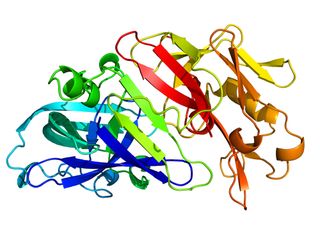
What is Protease?
What is Protease?
Your protein-degrading enzyme.
prō'tē-āz
A protease is an enzyme that breaks down proteins. There are actually several types of proteases, including but not limited to: cysteine, serine, metalloproteases, and aspartic. These special enzymes assist with a variety of bodily functions, from digestion to immune system functioning to blood clotting, and more!
In this article, we’ll discuss two key ways protease can assist with optimal health: enhanced digestion and muscle recovery.
Designated Digestion
Eat your protein and feel great, too! Undigested protein can cause inflammation and an onslaught of other health concerns, such as digestive stress, fatigue, and sickness. But protease aids in proper digestion by breaking down absorbable proteins into the amino acids that your body needs.
The human body uses 20 amino acids, all of which are important for proper functioning. But while the body can synthesize certain types, there are 10 essential amino acids that must be acquired through food, according to The Biology Project at the University of Arizona.
By breaking down the proteins you consume into their usable form – amino acids – protease assists in giving your body exactly what it requires, keeping you happier and healthier!
Defeating DOMS for Faster Muscle Recovery
When muscle damage and inflammation occur from intense exercise, an immune system response kicks in, prompting the release of pro-inflammatory substances to the injury site. But when pro-inflammatory levels remain elevated for too long, inflammation can worsen.
The result? All that muscle tissue damage, swelling, and blood vessel expansion during your workout can lead to some serious pain two to three days later, driven by a very calculated immune response. This is appropriately referred to as delayed-onset muscle soreness (DOMS).
How Protease Affects Your Post-Workout Recovery
Protease increases the activity of immune system cells that promote tissue restructuring, while also decreasing pro-inflammatory substances.
Therefore, the oral supplementation of protease:
- Speeds muscle recovery after overexertion.
- Eases muscle soreness.
- Restores muscle function more quickly.
It is important to note that proteases won’t prevent muscle damage, rather they target inflammation by interacting with the immune system and influencing the activity of the cells that function in post-exercise inflammatory responses.
The Proof is in the Protease
A study published in Medicine & Science in Sports & Exercise in March 2009 examined two groups of people who participated in downhill running, a particularly damaging exercise.
Here’s how the two groups were supplemented:
Group 1
14 individuals
5.83 g of protease blend
21 days of supplementation
Group 2
15 individuals
5.83 g cellulose placebo
21 days of supplementation
Blood samples were drawn before running 45 minutes of downhill exercise on a treadmill in addition to four more samples during the following 48 hours post-exercise.
The placebo group had higher levels of IL-6 and IL-12 (the pro-inflammatory immune responses), while the group who supplemented with proteases had lower levels of IL-6 and IL-12 along with reduced muscle inflammation and increased force production (muscle function) that gradually improved over the 48 hours following the workout.
This study also confirmed that protease supplementation increases leukocytes, which are immune system cells that support the regeneration of the cell membrane that engulfs muscle tissue fibers. In addition, it significantly lowered COX-2 levels, and therefore, pro-inflammatory prostaglandins, which can exacerbate inflammation if continuously produced.
Yes, protease even performs similarly to those COX-2 inhibitor medications you may have heard of – without the negative side effects!
Just the Facts, Please! How Can Protease Help Me?
Digestion
Protease aids in proper digestion by breaking down proteins into the amino acids that your body needs for optimal well-being.
Muscle Recovery
Scientific research has concluded that protease supplementation increases leukocytes, which assist in tissue regeneration, and decreases inflammatory substances, such as IL-6, IL-12, and COX-2.
So the next time you pop a protease post-workout, look forward to faster muscle recovery, decreased inflammation, and improved muscle function, even if it’s a personal record-breaking workout.